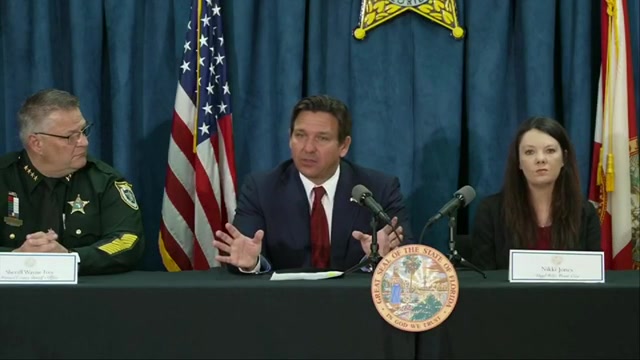Fort Myers City Council Reverses Immigration Training Decision
Published: [Insert Date]
City officials in Fort Myers, Florida, have unanimously approved a memorandum allowing local law enforcement to receive training from U.S. Immigration and Customs Enforcement (ICE) and participate in deportation efforts. This move marks a reversal of an earlier vote that drew significant public criticism, including threats of disciplinary action from state authorities.
Public Reaction and Council Discussion
The council meeting, which lasted over three hours, was characterized by two hours of intense public commentary, primarily consisting of opposition to the agreement. Many attendees voiced concerns about potential racial profiling that could arise from increased police involvement in immigration enforcement.
Dissent was notable as speakers attempted to address the council’s previous vote, only to be interrupted by the presiding officer, who emphasized that these discussions were off-topic for the day’s agenda.
Councilmembers Voice Concerns
During the meeting, councilmembers, including Darla Bonk, articulated their dissatisfaction with the information provided by Deputy Police Chief Victor Medico and City Attorney Grant Alley. Bonk remarked on the lack of clarity surrounding the legal implications of their earlier vote, stating, “I must express my grave concern that there was a significant dereliction of the duty on the part of my city attorney.”
She noted that councilmembers were pressured to vote on a matter that might not fall within their legal authority, raising concerns about risks imposed on public servants.
State Pressure and Legal Opinions
The council’s shift in stance occurred a day after Governor Ron DeSantis warned that failing to endorse the immigration agreement could result in severe consequences, including suspension from office. This warning came on the heels of state Attorney General James Uthmeier initiating an investigation into councilmembers who opposed the agreement, claiming that Fort Myers was operating under an illegal sanctuary policy.
Concerns Over Racial Profiling
Councilmember Diana Giraldo expressed particular concern regarding the powers granted to police under the new memorandum, which include the ability to arrest individuals lacking legal immigration status without a warrant. Giraldo argued that previous collaborations with federal immigration agents negate claims of Fort Myers functioning as a sanctuary city.
City Attorney Grant Alley offered an ambiguous assessment when asked about the legality of the council’s initial vote. He suggested that they typically seek guidance from the attorney general, but in this instance, Uthmeier’s remarks pushed for immediate compliance with state immigration laws.

